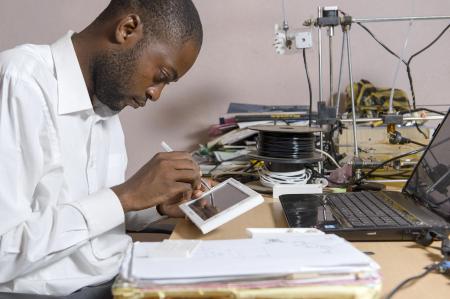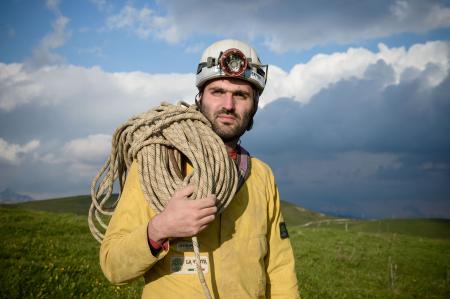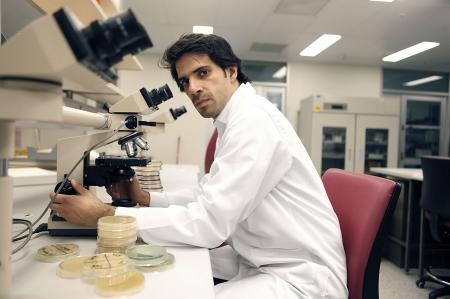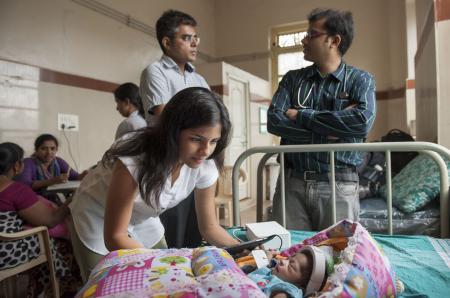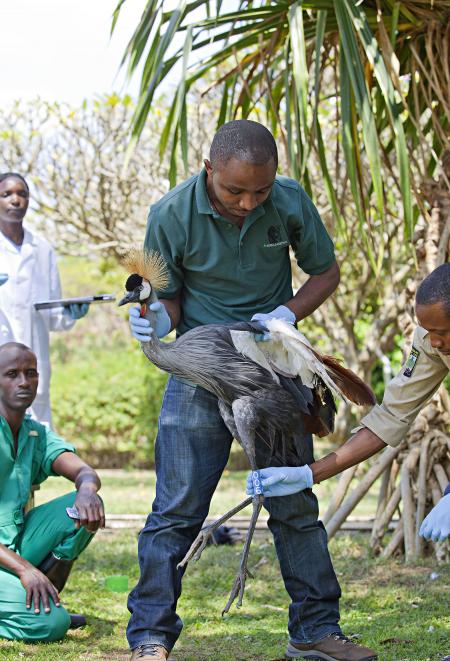Five inspiring individuals honoured as Young Laureates of Rolex Awards at London’s Royal Society
Five extraordinary young people are being celebrated as Young Laureates of the 2014 Rolex Awards for Enterprise today at London’s Royal Society – the world’s oldest scientific academy in continuous existence – for projects that range from screening babies for hearing loss, to exploring caves in the table-top mountains of South America, and tackling one of humanity’s most severe problems, the misuse of antibiotics.
The Young Laureates, from Cameroon, India, Italy, Rwanda and Saudi Arabia, are being honoured before an audience of leading entrepreneurs and key figures in the fields of science, technology and the environment in the U.K.
These five young pioneers were chosen by an international Jury of eight eminent experts who reviewed a shortlist from among 1,800 applicants from 129 countries. The Laureates each receive 50,000 Swiss francs to advance their projects, a Rolex chronometer and worldwide publicity.
While the Rolex Awards for Enterprise were launched in 1976, Rolex introduced a series for Young Laureates in 2009 to empower the next generation of leaders who are determined to bring about beneficial change to their communities and the world at large. This year’s winners again demonstrate the courage of young visionaries to undertake huge challenges. They are:
Neeti Kailas, 29, India – aims to vastly increase screening of newborn babies for hearing loss, through a low-cost, non-invasive device designed for use in low-resource settings, and to set up a network of health-care professionals in India who can diagnose or treat deafness.
Olivier Nsengimana, 30, Rwanda – is promoting breeding programmes of Rwanda’s captive and endangered grey crowned-cranes and spearheading their release into the wild, as well as inspiring a new generation of conservationists.
Francesco Sauro, 30, Italy – is exploring the vast quartzite caves of South America’s fabled table-top mountains on the border of Venezuela and Brazil, making discoveries of unique worlds that have evolved in isolation over millennia.
Arthur Zang, 26, Cameroon – has invented what is believed to be Africa’s first medical tablet, which will allow health-care workers in rural areas to send the results of cardiac tests to heart specialists via a mobile-phone network.
Hosam Zowawi, 30, Saudi Arabia – is developing rapid tests to detect the presence of antibiotic-resistant bacteria, now considered a global threat to human health. He also plans a regional public-awareness campaign warning of the dangers of the overuse and misuse of antibiotics.
“The Young Laureates are part of a new generation of young innovators who are single-minded in their attempt to change and contribute to the world and the welfare of their fellow human beings, said Rebecca Irvin, head of philanthropy at Rolex. “In particular, they are deeply involved in the concerns of their countries, trailblazing in a remarkable way and using technology to achieve their aims.”
The 2014 winners bring the total to 130 individuals, implementing projects in over 60 countries, whose spirit of enterprise and concern for the environment and mankind have earned support and recognition from the Rolex Awards in the last 38 years, in areas including science and health, applied technology, exploration and discovery, the environment, and preservation of cultural heritage.
Rolex philanthropy
Founded in 1976 to commemorate the 50th anniversary of the Rolex Oyster chronometer, the world’s first waterproof watch, the Rolex Awards for Enterprise support new and ongoing projects by individuals taking on major challenges in order to benefit mankind and make the world a better place. The Awards for Enterprise and the Mentor and Protégé Arts Initiative are Rolex’s two flagship philanthropic programmes. The Arts Initiative, launched in 2002, pairs world-renowned artists with emerging talents in seven artistic disciplines for a year of one-to-one collaboration.
